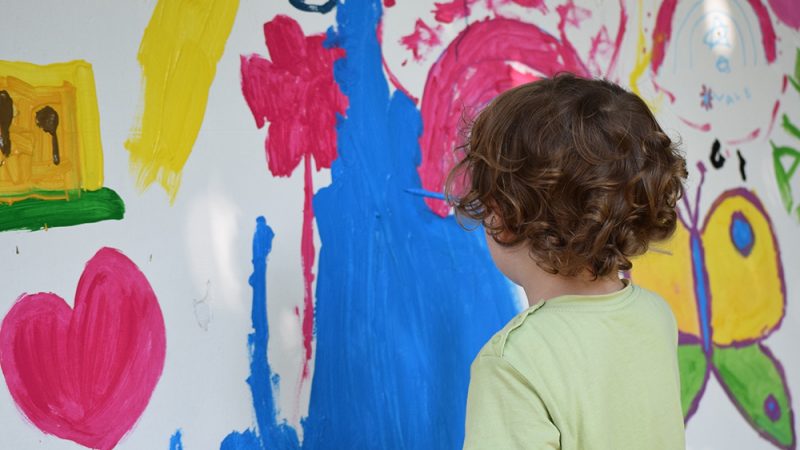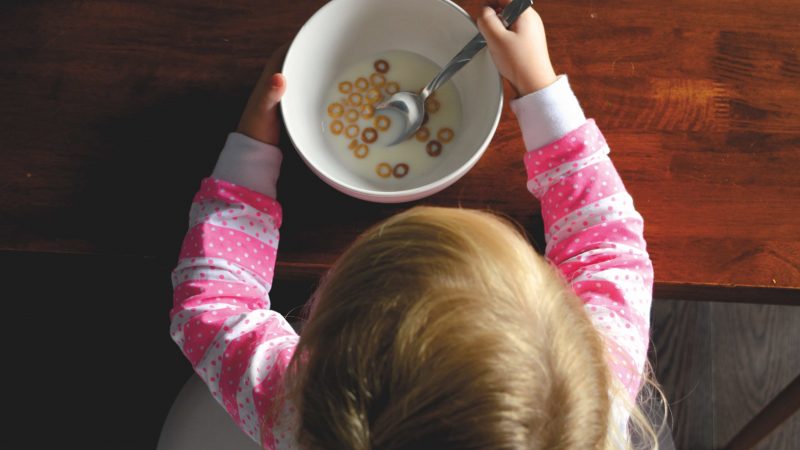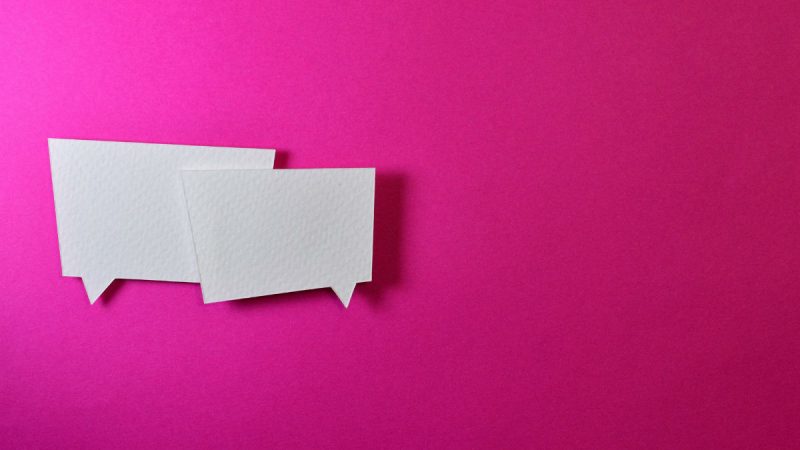
Can you hear me? A Q&A on Glue Ear
Around 80% of under 7s suffer from glue ear, so why don’t we hear more about it? We invited Dr Carmel Capewell to tell us more.
Image: World Bank Photo collection CC BY-NC-ND 2.0
Carmel: Hi! My interest in glue ear (GE) started with my children. As I am a curious human being I eventually did a PhD looking into the experience of those children with the condition on a long term basis.
PSG A: Love it! I think there are lots of people here who have started to envisage all sorts of PhDs for themselves!!!!!
Carmel: I also have a blog on the subject (which I will try to update more often!)
Q: How well identified is glue ear (GE)? Does it get diagnosed easily? Are there likely to be many undiagnosed cases?
Carmel: Loads of undiagnosed cases. As it is often temporary it can be dismissed as not important.
Parents usually notice that their child’s hearing can be less than it normally is. It is often accompanied by a cold.
Often parents notice that their child is pulling either one or both ear lobes.
Sometimes a child’s speech can be delayed.
The best way to find out if it is GE is to ask the doctor to look into the child’s ear. If the ear drum is pointing towards the ear then it is likely to be GE.
Q: How much difference is there between long term deafness and glue ear? Could glue ear cause deafness until the child grows out of it?
Carmel: Hi! This is a great place to start. Glue Ear is a form of conductive hearing loss – which means that there is not something wrong with the structure of the ear. There is a tube (Eustachian Tube) which goes from the back of the throat to the middle ear. It should be filled with air, but when a child (or adult) has glue ear the tube becomes filled with a sticky glue-like substance. This means that the sound waves cannot pass from the outer ear to the inner ear. It is like being under water or that sensation when you fly until your ears pop.
Permanent hearing loss is usually because there is damage to the inner ear (cochlea) or the auditory nerve connecting the inner ear to the brain.
When a child has glue ear they usually find their hearing is lost. This can be between 6-12 weeks.
Q: If a child is prone to ear infections are they more likely to develop glue ear?
Carmel: I would say so. Problem is people often don’t connect it.
The studies suggest that although not all ear infections lead to GE, a lot do. Again, get the doctor or nurse to look at the ear drum That is the key indicator of the presence of GE.
The other thing is that the doctor can see a build up of fluid
PSG C: Is glue ear a type of ear infection?
Carmel: It can be accompanied by ear infections.
If the pressure behind the ear drum really builds up then the ear drum can burst.
PSG D: Can this cause lasting damage? I think it has happened to my lb twice already and he is only 2y8m.
Carmel: If the ear drum bursts then scar tissue can build up. The doctors suggest a period of ‘watchful waiting’ before they will refer, as many children have GE that clears up.
PSG D: How can I stop this happening again?
Carmel: I wish I could answer that but I would say that it is really difficult to prevent. Maybe practical things like scarves and hats to keep the cold out of the ears.
In many cases it is associated with colds and sinus infections There is a suggestion that the younger a child develops it the more likely they are to keep having it.
Q: What do you think teachers and nursery staff need to know about GE?
Carmel: Great question. They often dismiss it. They need to know that the child will not be hearing. If this happens regularly then the child is missing out on social and academic skills.
It is often seasonal so is worse from October -April – when most of the learning in schools takes place.
PSG E: This is what we found. We would be referred in November then get an appointment in Jan, see them again in April when it was still a problem. Then we’d see them again in July and it had cleared up. Then the cycle started again in October!
Carmel: If a child’s speech is poor or they have a loud boomy voice then it’s worth considering if GE may be affecting them.
Learning phonics can be difficult if they don’t hear the different sounds.
PSG C: Do we know anything about learning interventions in response? I wonder if it’s best to just wait until it’s gone, or to use interventions you’d use for other types of hearing loss.
Carmel: I think it is good to act first.
Things parents can do are to make sure their child can see their face while they are talking. There was a comment about lip reading which children learn to do very early if they cannot hear.
In our house, we had a rule that only one person spoke at a time and that we did not have other noises (like radio or TV on).
PSG C: That’s amazing that they can be so adept at lip reading.
Carmel: Keep a record of how often it is happening. Ask to see an audiologist or Ear Nose and Throat specialist in the winter months.
PSG E: School and nursery said they would put him closer to them when sitting on the floor but I think they forgot after a few weeks. They think it clears up fast and don’t realize it reoccurs and is an ongoing problem.
Is there anything that can be done when it is recurrent?
Carmel: The standard NICE guidelines (what the NHS says should happen) is for grommets to be inserted into the ear drum. This is just a temporary relief. It can cause scarring to the ear and needs to be done under a general anaesthetic. Hearing aids can help but you have to really fight your corner for those.
PSG E: I had these as a kid (at the same time as tonsils out) and it worked wonders for me.
Q: Can GE reoccur a lot?
Are associated problems likely or just a coincidence? Personal interest – I can’t blow my nose because the pressure hurts, I have tinnitus sometimes, water in my ear can cause excruciating pain. Flying can cause days of pain. I have no idea if it’s all related from childhood problems!
Carmel: It could well be. Adults do get it but it is more frequent in children. If you had loads of episodes and have a hole in your ear drum then that is permanent damage. My son does not have a left ear drum and has permanent hearing loss.
PSG G: Your poor son 🙁 sounds like it might be the reason then!
Carmel: He copes really well. The problem is that often you are told it is temporary and until I did my PhD we never described him as deaf.
Q: I had awful ear infections when I was younger and a perforated ear drum. As a young adult I caught swine flu and went partially deaf in 1 ear for a month- is it possible for an adult to suffer with glue ear?
Carmel: Yes. The joke in my family was that I too got it while doing my PhD!
Q: My son regularly doesn’t “hear” us, but when I do little tests he can always hear quiet stuff. How do you spot the difference between a typical 4 year old’s inattention and a problem with hearing?
Carmel: I think that it can be hard to spot. If he cannot see you then that could be an indicator that he is lip reading.
PSG H: Most of the time when I do things like talk to him quietly in the dark he can hear me, but he has a preference for having the volume VERY loud when he’s watching videos etc which always makes me wonder…
Carmel: It can be intermittent.
Carmel: Also if you are one to one and there are no other noises then he may be able to concentrate on what you are saying.
PSG H: Thanks. I’ll keep checking. He’s also terrified of doctors and the one time he had a raging ear infection we had to physically restrain him so the GP could look in his ear ?. But I’m going to do a session at nursery soon which includes looking in ears and I’m hoping that might get him a bit more comfortable with it…
Carmel: If he has an infection it could be painful so may be worth giving calpol or similar to relieve pain. My son adopted the saying “You should look with your eyes”. Sometimes it might help to play a game looking in each other’s ears.
Q: What do children say about it? Do they know they can’t hear, or do they just think the worlds gone quieter?
Carmel: One of the children in my study described it as having snotty ears.
PSG F: ?
Carmel: Quite often the children are aware that they can’t hear. I think it a good idea to regularly ask the child if they can/not hear. It can vary on a day to day week to week basis.
PSG I: My son knows that he can’t hear us properly when he’s going through a bad phase. He’ll often be heard saying ‘What mummy? I can’t hear you.’ and talks about how he can’t hear properly.
Carmel: That is often the case. It is a good idea to alert teachers to the situation. There are varying reactions from them.
Q: Should parents be proactive about getting their child assessed for glue ear every so often to make sure that it is caught before hearing loss occurs?
Carmel: Not that anyone seems to think.
The hearing loss is often temporary unless the child has lots of episodes of GE.
I think that it is a good idea to get ears checked if the child has a cold. If there is a change in the volume that they want the TV, if they ask pardon or similar a lot.
PSG E: In the referral letter to the hearing clinic it says that if the children have a cold you should reschedule the appointment as they won’t test them.
Carmel: Different places in the country vary. I would always ask for the doctor to look at the ear drum and that can tell how much fluid there is.
PSG C: Perhaps a useful topic for your blog could be how to keep a diary that will be useful when you go to the doctor with the problem. What sort of things to keep note of and how often.
Carmel: That is a good idea. I am developing something I call Hearing Maps which children and the adults identify when and where they cannot hear speech in background noise. If anyone is interested then contact me.
PSG I: For info, we just phoned the health visitor when my son was 3 and said that we were concerned that he couldn’t hear us properly (constantly saying ‘What mummy? What did you say?’ and we tested him by playing a game, whispering his name behind his back, gradually getting louder). The health visitor team referred us without even seeing him. We’ve been under the watch of Ear. Nose and Throat specialists for maybe a year now; his hearing has gradually been improving and he was nearly signed off in September. Has his next appointment next week.
Carmel: Yes, if often clears up on its own. Best to be alert to hearing loss and make sure the child can see you and check back that they understand.
Q: Can you tell us a bit about the research you did with children? Apart from thinking up gross descriptions of their situation(!), what else did you learn from them?
Carmel: My PhD was trying to understand how children experienced it over the long term. They had problems with relationships as quite often their friends got frustrated that they couldn’t hear them and they had to repeat themselves.
The Hearing Maps work I am doing is with much younger children who may well have the condition temporarily. This is to try to gain insight into the extent to which it is impacting a child and what actions the adults around them can take to help them hear better.
PSG K: This will be so helpful!
Q: What do think are the biggest worries of parents of children with GE?
Carmel: A big worry is that there may be other issues. A few of the mothers in my original study mentioned that their child had been checked for being autistic as some of the coping strategies can result in similar behaviours.
For example, young children hiding under tables or becoming very distressed in noisy environments or with vacuum cleaners.
PSG A: Do you think that it is ever confused by HCPs?
Carmel: Yes. The other thing is that the children can be quite literal in their understanding of speech.
This is because the child cannot block out sounds as many of us do. This is something we learn up until the age of 15 in normal hearing children.
Q: My 3yo has excellent speech & language but has a new habit of saying ‘what did you say?’ repeatedly – does it a fair bit at home but non-stop on video calls to grandparent. Husband thinks she’s just copying him but as an Speech and Language Therapist I’m not so sure. How likely is glue ear to onset around this age with no other symptoms?
Carmel: Hard to say. It could be worth getting the doctor to look at the ear drum. There is some research that suggests that girls often don’t have infections, just a build-up of fluid. Worth getting her checked.
Q: Have you looked at how GE can impact on children’s relationships w hearing siblings?
Carmel: The child with GE can become very frustrated. He/she often wants some time out so that they don’t have to concentrate on listening. I think it is a good idea to allow for that.
Q: Once a child is diagnosed w GE – and in our 22mth old’s case has a bone conduction hearing aid for moderate hearing loss – how often should they get a hearing test?
Carmel: I think that you should have the hearing checked at least every 6 months. My daughter got hearing aids much later and she knows when she needs them.
Bone conduction hearing aids are so much more effective than traditional ones.
Q: If you could wave a magic wand, what research would you have done on GE and it’s effects?
Carmel: I would have started sooner. I think there is a lot of work to be done on the social skills side.
I am pushing all the time for more education of teachers and nursery staff about it.
Children develop really interesting coping strategies.
Q: Have you done any research into grommets and if so would you recommend them?
Carmel: There is some stuff on grommets. They are temporary and do fall out. If I had my time again I would have been quicker in asking for hearing aids. Grommets will scar the ear drum so reduce the effectiveness of the ear drum.
I think it is something that needs more discussion and thinking about. They can be good if your child doesn’t have recurring ear infections.
Q: My 6yr 4months old daughter had grommets fitted in both ears in July this year. No issues, waited two months before swimming etc, but the last three times we’ve been swimming, she’s experienced some degree of pain in one ear, but hasn’t lasted longer at all, and hasn’t put her off diving underwater etc.
Does she need to get that checked out?
Carmel: You could get her to wear ear plugs. The grommets cause a hole in the ear drum so water can get in. The usual advice is not to let children go under water.
PSG L: Thank you. I will broach the subject of ear plugs with her again.
We saw the GP two months post op, and said swimming was fine again, but didn’t mention about not going underwater.
Thank you for replying, we’ll get some earplugs asap.
PSG: Thank you Carmel for joining us tonight. It has been an really enlightening session.
Carmel: Thank you for inviting me to this It has been a good experience.
Did you enjoy this Q&A? Why not read some more of our sessions such as:
- What is Reasonable Behaviour? with Dr Bonamy Oliver
- What do we know about Babywearing? with Dr Rosie Knowles
- How do Girls and Boys Read? with Dr Sarah McGeown
You can read other Q&As on lots of subjects relating to parenting at: www.parentingsciencegang.org.uk/live-chats-with-the-experts/.


